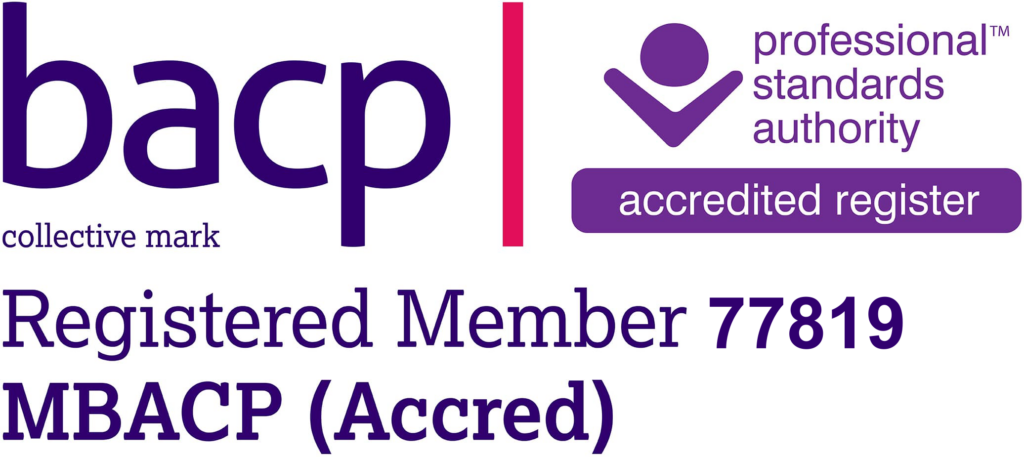"Respecting Human Rights And Dignity"
Ethics
We adhere to BPS’s code of Ethics and Conduct and to BACP’s Ethical Principles of Counselling and Psychotherapy Principles direct attention to important ethical responsibilities.
Each principle is described below and is followed by examples of good practice that have been developed in response to that principle.
Ethical decisions that are strongly supported by one or more of these principles without any contradiction from others may be regarded as reasonably well founded. However, practitioners will encounter circumstances in which it is impossible to reconcile all the applicable principles and choosing between principles may be required. A decision or course of action does not necessarily become unethical merely because it is contentious or other practitioners would have reached different conclusions in similar circumstances. A practitioner’s obligation is to consider all the relevant circumstances with as much care as is reasonably possible and to be appropriately accountable for decisions made.
Fidelity: Honouring the trust placed in the practitioner
Being trustworthy is regarded as fundamental to understanding and resolving ethical issues. Practitioners who adopt this principle: act in accordance with the trust placed in them; regard confidentiality as an obligation arising from the client’s trust; restrict any disclosure of confidential information about clients to furthering the purposes for which it was originally disclosed.
Autonomy: Respect for the client’s right to be self-governing
This principle emphasises the importance of the client’s commitment to participating in counselling or psychotherapy, usually on a voluntary basis. Practitioners who respect their clients’ autonomy: ensure accuracy in any advertising or information given in advance of services offered; seek freely given and adequately informed consent; engage in explicit contracting in advance of any commitment by the client; protect privacy; protect confidentiality; normally make any disclosures of confidential information conditional on the consent of the person concerned; and inform the client in advance of foreseeable conflicts of interest or as soon as possible after such conflicts become apparent. The principle of autonomy opposes the manipulation of clients against their will, even for beneficial social ends.
Beneficence: A commitment to promoting the client’s well-being
The principle of beneficence means acting in the best interests of the client based on professional assessment. It directs attention to working strictly within one’s limits of competence and providing services on the basis of adequate training or experience. Ensuring that the client’s best interests are achieved requires systematic monitoring of practice and outcomes by the best available means. It is considered important that research and systematic reflection inform practice. There is an obligation to use regular and on-going supervision to enhance the quality of the services provided and to commit to updating practice by continuing professional development. An obligation to act in the best interests of a client may become paramount when working with clients whose capacity for autonomy is diminished because of immaturity, lack of understanding, extreme distress, serious disturbance or other significant personal constraints.
Non-maleficence: A commitment to avoiding harm to the client
Non-maleficence involves: avoiding sexual, financial, emotional or any other form of client exploitation; avoiding incompetence or malpractice; not providing services when unfit to do so due to illness, personal circumstances or intoxication. The practitioner has an ethical responsibility to strive to mitigate any harm caused to a client even when the harm is unavoidable or unintended. Holding appropriate insurance may assist in restitution. Practitioners have a personal responsibility to challenge, where appropriate, the incompetence or malpractice of others; and to contribute to any investigation and/or adjudication concerning professional practice which falls below that of a reasonably competent practitioner and/or risks bringing discredit upon the profession.
Justice: The fair and impartial treatment of all clients and the provision of adequate services
The principle of justice requires being just and fair to all clients and respecting their human rights and dignity. It directs attention to considering conscientiously any legal requirements and obligations, and remaining alert to potential conflicts between legal and ethical obligations. Justice in the distribution of services requires the ability to determine impartially the provision of services for clients and the allocation of services between clients. A commitment to fairness requires the ability to appreciate differences between people and to be committed to equality of opportunity, and avoiding discrimination against people or groups contrary to their legitimate personal or social characteristics. Practitioners have a duty to strive to ensure a fair provision of counselling and psychotherapy services, accessible and appropriate to the needs of potential clients.
Self-respect: fostering the practitioner’s self-knowledge and care for self
The principle of self-respect means that the practitioner appropriately applies all the above principles as entitlements for self. This includes seeking counselling or therapy and other opportunities for personal development as required. There is an ethical responsibility to use supervision for appropriate personal and professional support and development, and to seek training and other opportunities for continuing professional development. Guarding against financial liabilities arising from work undertaken usually requires obtaining appropriate insurance. The principle of self-respect encourages active engagement in life-enhancing activities and relationships that are independent of relationships in counselling or psychotherapy.


